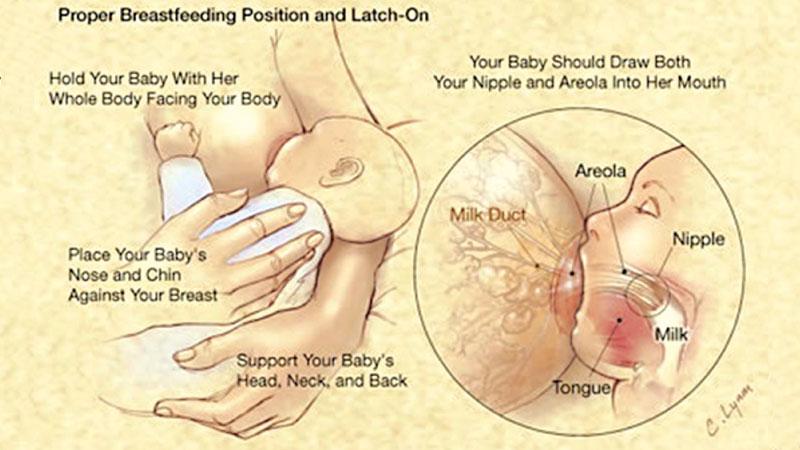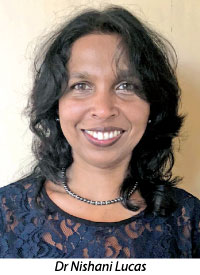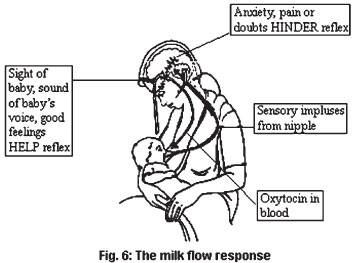
On the occasion of World Breasfeeding Week 2018, the Sunday Observer spoke to Dr Nishani Lucas, Consultant Neonatologist, De Soysa Hospital for Women, Colombo, about the numerous health benefits of breast milk for the baby and how breastfeeding benefits the mother.
 Q. National Breastfeeding Week was recently observed on the recommendation of the World Health Organisation (WHO) The theme this year was Breastfeeding: Universal Foundation of Life. What inspired it?
Q. National Breastfeeding Week was recently observed on the recommendation of the World Health Organisation (WHO) The theme this year was Breastfeeding: Universal Foundation of Life. What inspired it?
A. There is scientific evidence that the nutrition provided in the first 1,000 days of life, starting from conception to the first two years after birth, programs the body. This early programming effect causes babies who are breastfed to have a lower risk of obesity, diabetes, heart disease, hypercholesterolaemia and leukemia. Furthermore, breastfeeding increases IQ by 7-10 points, and improves cognition in the child. Breastfeeding is the most effective strategy to reduce infant deaths and prevents 800,000 infant deaths per year by reducing the risk of respiratory infections by 72%, diarroheal infection by 64%, ear infection by 50% and sudden infant deaths by 30% within the first two years of life. It also enhances the development of the immune system, colonises the gut with healthy commensals, promotes jaw growth and prevents malocclusion of teeth. Breastfeeding is accessible by all socioeconomic groups and is a lifesaver during humanitarian crisis. Therefore, breast milk determines the baby’s short and long term health via the early programming effect and is essentially the universal foundation of life.
Q. Sri Lanka was recently quoted as being in the lead in breastfeeding in South Asia. A recent report however has noted that most mothers discontinue breastfeeding when they return to work despite extended maternity benefits given them by the state to persuade them to continue to feed their infants with only breast milk for the first six months of their lives. Briefly comment on this.
A. Although maternity benefits are given, they have to be supplemented with a breastfeeding friendly environment to facilitate mothers to express and discard/store their breast milk 4-6 hourly or have a day care facility within the workplace where their babies can be breastfed. Working mothers have to be identified as a group that needs more support, and should be empowered with knowledge and skills to express breast milk and give cup feeds to their babies while working. Formula feeding and bottle feeding should be avoided as it reduces breast milk production. They should be educated that it is preferable to start complementary feeds (rice, meat/fish/eggs, vegetables, fruits) at the end of 4 months before returning to work rather than start formula feeding if they are unable to meet the challenges of meeting the babies’ requirements with the expressed milk.
Q. As a Neonatologist, what do you believe to be the most important benefits of breastfeeding in terms of a child’s development and growth?
 A. Breastfeeding increases IQ by 7-10 points and optimises the baby’s development. It also provides all nutrients in the correct amounts in the most bioavailable forms, thus providing the optimal nutrition for the baby. Breastfeeding facilitates optimum growth and development via marked reduction in childhood illness. Growth is also optimised by prevention of gastrointestinal infections by colonisation of the gut with healthy intestinal flora compared to colonisation by pathogenic bacteria when formula milk is used.
A. Breastfeeding increases IQ by 7-10 points and optimises the baby’s development. It also provides all nutrients in the correct amounts in the most bioavailable forms, thus providing the optimal nutrition for the baby. Breastfeeding facilitates optimum growth and development via marked reduction in childhood illness. Growth is also optimised by prevention of gastrointestinal infections by colonisation of the gut with healthy intestinal flora compared to colonisation by pathogenic bacteria when formula milk is used.
Q. With regard to mental growth and IQ, a UNICEF report claimed that breastfed infants develop confidence and their IQ level increased over 10 points. It also stated that the brain of a child grows during the first three years of his life and breast milk helps the child to grow into a healthy adult. Do you agree?
A. This is absolutely correct. Breastfed children have IQ 7-10 points higher than one that is not breastfed. Optimum growth is caused by optimal nutrition provided in the first two years of life in the form of exclusive breastfeeding in the first six months followed by continued breastfeeding in the first two years along with good quality complementary feeding with three main meals and two snacks a day with each main meal consisting of rice and grains, pulses, vegetables, fruits, animal proteins such as eggs, meats, fish and snacks containing fruits / yoghurt.
Q. For how long should a baby be allowed to suck at his mother’s breast? Is there a time duration? Does it vary from baby to baby?
A. This would vary from baby to baby as breast capacity varies from mother to mother and stomach capacity varies from baby to baby. Baby should be allowed feed at the breast until it pulls away when it is full. There is no time duration. Usually it takes 10-15 minutes for a baby to empty the mothers breast soon after birth, but as the baby becomes older and more skillful he/she will be able to empty the breast much faster in five minutes or less. Baby should not be forced back to the breast. A baby of a mother with smaller breast capacity may want to feed more frequently i.e every 1 ½ hours, as he takes in lesser volume of milk per feed than a baby of a mother with higher breast capacity who takes more milk per feed thereby feeding less frequently i.e every 3-4 hours.
Q. Myths surrounding breastfeeding, that it results in loss of breast shape and causes sagging of breasts?
A. Breast firmness and shape is maintained by ligaments of Cooper, which may be damaged by not supporting the breast in its phase of rapid enlargement that occurs 3-5 days after the baby is born. Therefore, it is important to wear a well fitted underwear to support the enlarging breast. Wearing tight underwear (using breast support that was used for the previous smaller breast size before lactating) will obstruct breast milk drainage and cause mastits.
Q. Some mothers feel the size of their breast is too small to breastfeed. What is your advice?
A. Breast size is immaterial. Breast size is determined by the fat content. Any breast size can breastfeed !
Q. When should breastfeeding be initiated? Why?
A. Breastfeeding should be initiated soon after birth, within the first hour of life. There is a lot of evidence to show that early initiation of breastfeeding is associated with successful establishment of breastfeeding. Babies breastfed within the first hour of life have less weight loss, less jaundice, less dehydration fever and shorter hospital stay.
Q. The value of the first milk of the mother Colostrum is still not understood by some mothers, especially, illiterate mothers who throw away this milk. What role does colostrum play in providing the perfect nutrition for a newborn, and protecting him from infections?
A. Colostrum is very rich in immunoglobulins, which are antibodies that protect us against infection. A newborn has a less mature immune system than an adult, and is more susceptible to infection. Providing colostrum to the newborn is vital to protect against deadly infection. A newborn baby’s stomach is the size of a cherry, so a few drops of colostrum is all that it needs. Each mother makes milk with a composition to perfectly suit her baby’s requirement and thereby provides the optimum nutrition that her baby needs.
Q. Breast milk has also been cited as an essential ingredient for gut maturation. Do you agree?
A. Baby’s gut is sterile at birth. Whatever organisms reach the baby’s gut first colonises it. Breast milk contains friendly bacteria like Lactobacillus and Bifidobacter that help with gut maturity, whereas formula milk contains harmful bacteria such as Enterobacter sakazakki, Salmonella which cause invasive disease whenever the baby’s immunity is low.
Q. Is it true that about 25% of newborn deaths can be averted by early initiation of breastfeeding? What is the Sri Lankan scenario in relation to these world figures?
A. Breastfeeding was found to be the most effective strategy to prevent infant deaths (Lancet 2003 series), prevent 800,000 infant deaths annually. Although Sri Lanka is a developing South Asian country our neonatal mortality rate is comparatively low - around 5.3 per 1,000 live births (2016) which is a little higher to the UK (3.8 per 1,000 live births). Although we lack many resources compared to a developed country like UK the fact that we are well ahead in breastfeeding is perhaps one of the main reasons why we have low neonatal mortality rates.
Q. Regarding maternal health how does breastfeeding help mothers?
A. Breastfeeding reduces risk of breast cancer, endometrial and ovarian cancer, and helps them regain their pre pregnant body shape, reduces risk of anemia and helps to control their diabetes while increasing bonding with their baby.
Q. Is it correct that breastfeeding also delays/acts as a natural spacing barrier?
A. There is a 98% protection against pregnancy in the period that the mother is exclusively breastfeeding.
Q. Studies now show that breastfeeding cuts the risk of developing type 2 diabetes in mothers. From your experience is this correct?
A. Breastfeeding reduces the risk of diabetes in the offspring of a diabetic mother, 39% less in Type 1 diabetes and 27% less in type 2 diabetes. Breastfeeding also increases the insulin levels in the diabetic mother improving her diabetic control.
Q. At the De Soysa Hospital for women where you work I understand you have a special program for new mothers. Can you tell us more about it?
A. We teach our mothers about the benefits of breastfeeding and empower them with the skills of breastfeeding from the antenatal period. We make sure all babies are breastfed within the 1st hour of life.
The healthcare staff supports each mother individually, empowering her to successfully establish breastfeeding. Prior to discharge, each baby’s weight and mother’s breastfeeding technique is checked, to ensure that breastfeeding is successfully established.
Q. Your advice in a nutshell to mothers, husbands, parents and grandparents.
A. Breast feeding is the foundation of life. Don’t deny your child the right to live a healthy life! Support mothers to exclusively breastfeed for six months and continue breastfeeding for two years. Breastfeeding is not easy, but it’s worth the trouble. Skilled support is available at your nearest Lactation Management Centre attached to all major State Hospitals.
